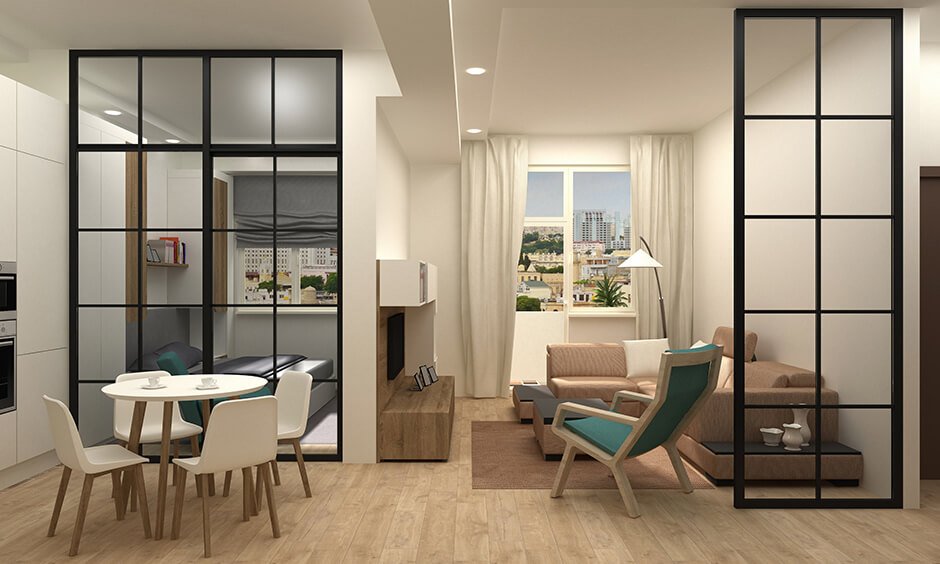When it comes to creating functional and aesthetically pleasing spaces, wall partition materials play a crucial role. The choice of house partition materials greatly impacts the overall look, feel, and functionality of a room. From enhancing privacy to optimizing natural light, selecting the right partition materials can transform your space. In this guide, we will delve into the various factors to consider and explore different partition materials to help you make an informed decision.
Consider factors and explore partition materials for an informed decision
Understand Your Requirements
Before diving into the world of partition materials, it’s essential to understand your specific needs. Consider factors such as the purpose of the partition (privacy, soundproofing, or visual separation), the desired level of transparency, and the overall design theme of your space. By clarifying your requirements, you can narrow down the options and make a more precise choice.
Glass Partitions
Glass partitions have gained immense popularity in recent years thanks to their ability to create a seamless and modern look. They allow natural light to flow through the space, making it appear larger and more open. Tempered or laminated glass is commonly used for safety reasons. Frosted or tinted glass can provide privacy while still maintaining a sense of openness. As a versatile interior partition wall material, glass partitions work well in offices, conference rooms, and homes where an airy and contemporary atmosphere is desired.
Gypsum Partitions
Gypsum board partitions are a versatile option that offer excellent soundproofing and fire-resistant properties. These partitions are easy to install and can be customized to fit any space. Gypsum boards are lightweight, reducing the load on the structure, and provide a smooth surface for painting or wallpapering. They are commonly used in commercial spaces, residential interiors, and areas where acoustic insulation is important.
Wooden Partitions
For a touch of warmth and natural beauty, wooden partitions are an excellent choice. Wood adds a classic and timeless appeal to any space. Depending on the type of wood used, wooden partitions can provide varying levels of soundproofing. They can be solid or designed with slats or panels for enhanced airflow and visual interest. Wooden partitions work well in homes, restaurants, and retail spaces where a cozy and inviting ambiance is desired.
You can Also Read About: 3 Reasons Art Rules Interior Design
Metal Partitions
Metal partitions offer a sleek and contemporary look, making them ideal for modern and industrial-themed spaces. They are durable, low-maintenance, and provide excellent structural stability. Metal partitions can be made of materials such as steel, aluminium, or iron, offering different levels of strength and visual aesthetics. These partitions are commonly used in offices, retail stores, and public areas where a minimalist and robust design is desired.
Composite Partitions
Composite partitions combine different materials to leverage their individual advantages. For example, a combination of glass and wood can create a unique blend of transparency and warmth. Composite partitions allow for endless design possibilities and can be tailored to meet specific requirements. These partitions are suitable for spaces where both functionality and aesthetics are important, such as hotels, upscale residences, and art galleries.
Conclusion
Selecting the right partition materials is crucial for achieving a harmonious and functional space. By understanding your requirements and exploring the various options available, you can make an informed decision. Whether you opt for glass, gypsum, wood, metal, or composite partitions, each material brings its own unique set of benefits to enhance your space. So, take the time to consider your needs, consult with professionals if needed, and choose partition materials that perfectly complement your vision.

